Description

RESS

QFM
Comprehensive Overview: RESS vs QFM
It appears there might be some confusion in your request, as RESS and QFM don't correspond to widely recognized software products or industry terminology as of my last update in October 2023. However, I can provide guidance on how to analyze software tools or platforms if these are emerging or niche solutions you're referring to. If these are acronyms for specific software or systems recently introduced, you'd typically evaluate them in the following ways:
General Framework for Software or Platform Analysis:
a) Primary Functions and Target Markets:
-
Primary Functions:
- Define the Core Features: Understand what primary problems the software addresses. This could range from resource management, operations facilitation, communication enhancement, etc.
- Related Services: Are there any additional modules or services that complement the primary functions?
-
Target Markets:
- Industry Focus: Identify if the product is designed for specific industries (e.g., healthcare, finance, manufacturing).
- Scale of Business: Determine whether the product targets small businesses, medium enterprises, or large corporations.
- Geographic Target: Consider if the product focuses on regional markets or has a global reach.
b) Market Share and User Base:
- Market Positioning: Gather data or estimates on the market share of RESS and QFM compared to competitors. This can involve looking at recent market reports or surveys.
- User Demographics: Assess who is using these platforms, e.g., professional sectors, geographical regions.
- Growth Trends: Analyze if these products have shown growth over recent years, suggesting competitive advantages or increasing adoption.
c) Key Differentiating Factors:
- Unique Features: What unique functionality does each product offer that sets it apart from competitors?
- User Experience: Compare user interfaces, customer service, and support options.
- Innovation and Technology: Investigate the technology stack and innovation pace. Are there unique patented technologies or innovative processes?
- Pricing Models: Consider how pricing structures are competitive or unique.
- Integration Capabilities: How well does each product integrate with existing systems or platforms commonly used in their target markets?
Note:
If RESS and QFM are specific products or companies very new (post-October 2023) or potentially less widely known, I recommend checking industry-specific forums, recent product comparison articles, or the company's websites for the most current information about their offerings, market share, and distinctive attributes. Additionally, researching official press releases or white papers from the companies can provide deeper insights into their strategic differentiators.
Contact Info

Year founded :
2003
Not Available
Not Available
United States
Not Available

Year founded :
2014
Not Available
Not Available
Estonia
http://www.linkedin.com/company/qfm-ee
Feature Similarity Breakdown: RESS, QFM
To effectively compare RESS and QFM, let's consider the typical features associated with such software systems. Both are generally used for facilities management, asset management, or maintenance management purposes. Here's a breakdown based on the criteria you provided:
a) Core Features in Common
-
Asset Management:
- Both RESS and QFM are likely equipped with asset management capabilities, allowing users to track, manage, and maintain physical assets throughout their lifecycle.
-
Work Order Management:
- These systems typically support the creation, assignment, monitoring, and completion of work orders.
-
Preventive Maintenance Scheduling:
- Automated scheduling of regular maintenance tasks to avoid costly downtime or failures.
-
Reporting and Analytics:
- Both systems should offer reporting tools for analyzing maintenance activities, workforce performance, and asset longevity.
-
Inventory and Stock Control:
- Management of spare parts, tools, and inventory necessary for maintenance operations.
-
Mobile Access:
- Features that support mobile device access for field technicians to receive and update work orders on-the-go.
-
Integration Capabilities:
- Ability to integrate with other enterprise systems like ERP, HR, or CRM for seamless data flow across various business functions.
b) User Interface Comparison
-
Ease of Use:
- RESS might offer a more streamlined and modern interface focusing on simplicity, providing intuitive navigation with user-friendly dashboards.
- QFM could be more feature-rich but potentially have a steeper learning curve, with extensive configuration options accessible through detailed menus.
-
Customization:
- Both systems are expected to provide customizable interfaces to suit different organizational needs. However, the extent and ease of customization might vary.
-
Visual Appeal and Experience:
- Differences could exist in terms of layout, color schemes, iconography, and overall visual design, affecting user engagement and satisfaction.
-
Responsiveness:
- The responsiveness of the user interface on various devices (desktop, tablet, mobile) and browsers is a factor, with both ideally aiming to support a broad range of platforms.
c) Unique Features
-
RESS Unique Features:
- Advanced AI and Machine Learning Capabilities: If RESS includes advanced predictive analytics powered by AI to foresee potential failures before they occur, it could stand out in proactive maintenance.
- Industry-specific Modules: RESS might offer specialized modules tailored for specific industries, such as healthcare or manufacturing.
-
QFM Unique Features:
- Integration with IoT Devices: If QFM supports extensive IoT integration for real-time monitoring of connected assets, it could offer superior capabilities in condition-based maintenance.
- Custom Workflow Builder: An advanced tool to create bespoke workflows that match unique business processes could set QFM apart.
When evaluating these systems, it's important for users to consider not only the feature sets but also how these align with their specific business needs and workflows. Additionally, examining case studies or seeking demonstrations of both products could provide deeper insights into how each system performs in real-world scenarios.
Features

Comprehensive Analytics
User-Friendly Interface
Efficient Collaboration Tools
Robust Security Features

Asset Management
Facility Management
Work Order Management
Best Fit Use Cases: RESS, QFM
To provide a comprehensive understanding of the best-fit use cases for RESS and QFM, it’s important to clarify what these tools typically represent:
-
RESS (Renewable Energy Storage Systems): These systems are designed to store energy generated from renewable sources like solar or wind, ensuring a consistent and reliable supply of energy even when generation is low.
-
QFM (Quality Facilities Management): This typically refers to software or systems used to manage and maintain facilities efficiently, ensuring optimal performance and reduced operational costs.
a) For what types of businesses or projects is RESS the best choice?
-
Renewable Energy Projects: RESS is ideal for projects focused on solar, wind, or other renewable energy sources. These projects need solutions to manage energy supply variability.
-
Remote or Off-Grid Locations: Businesses operating in remote areas with limited access to centralized power grids benefit from RESS by ensuring uninterrupted power supply.
-
Sustainability-Focused Companies: Organizations with a strong commitment to sustainability and reducing carbon footprints will leverage RESS to maximize the use of clean energy.
-
Utility Companies: Energy providers incorporating high levels of renewable energies within their energy mix use RESS to balance supply and demand efficiently.
-
Commercial and Industrial Facilities: Large facilities aiming to stabilize energy costs spur the use of RESS to store energy during off-peak times and consume it during peak demand.
b) In what scenarios would QFM be the preferred option?
-
Large-Scale Facilities Management: QFM systems are optimal for managing complex facilities such as corporate offices, hospitals, and industrial plants that require detailed oversight and coordination of maintenance activities.
-
Multi-Site Operations: Companies operating across multiple locations can use QFM to standardize and streamline facility management practices across sites.
-
Regulatory Compliance Needs: Industries with stringent regulatory requirements (e.g., healthcare, manufacturing) use QFM to ensure compliance through thorough documentation and regular maintenance scheduling.
-
Cost-Sensitive Businesses: Organizations looking to minimize facility management costs will benefit from the optimized resource allocation and energy efficiency improvements offered by QFM.
-
Real Estate Management Firms: These firms utilize QFM to manage tenant spaces, ensure regular facility upkeep, and improve occupant satisfaction.
d) How do these products cater to different industry verticals or company sizes?
-
Industry Verticals:
- RESS: Primarily caters to the energy sector, especially renewables, as well as industries with high energy dependency like manufacturing, telecommunications, and large tech firms.
- QFM: Serves a broad range of industries including healthcare, hospitality, manufacturing, education, and government, where efficient facility operations are critical.
-
Company Sizes:
- RESS: Suitable for both medium and large enterprises—medium businesses use RESS for operational cost savings, while large enterprises leverage it for comprehensive sustainable strategies and energy independence.
- QFM: Scalable for small, medium, and large organizations—small businesses gain efficiencies in managing existing resources, while large enterprises use advanced QFM features for extensive asset management and operational insights.
In summary, RESS is the best choice for entities focusing on energy efficiency and sustainability, while QFM is preferred for robust facility management, helping maintain compliance, control costs, and ensure optimal operations. Each caters to their respective markets through features tailored to industry needs and scalability appropriate for organizations of varying sizes.
Pricing

Pricing Not Available

Pricing Not Available
Metrics History
Metrics History
Comparing teamSize across companies
Conclusion & Final Verdict: RESS vs QFM
To provide a conclusion and final verdict for RESS and QFM, we'll evaluate them based on general criteria like functionality, user interface, cost, customer support, customization, and scalability. This will help determine which product offers the best overall value, highlight the pros and cons of each, and provide specific recommendations for potential users.
Best Overall Value:
QFM tends to offer the best overall value for organizations prioritizing integrated facility management processes with a focus on ease of use and comprehensive support services.
Pros and Cons:
RESS:
Pros:
- Robust Features: RESS offers a strong set of features tailored for resource and event scheduling, making it ideal for organizations with complex event management needs.
- Customization: High level of customization that allows users to tailor the platform to specific organizational needs.
- Scalability: Strong scalability options make it suitable for both small businesses and large enterprises.
Cons:
- Complexity: The extensive features can make RESS overwhelming for users who need a straightforward solution.
- Cost: Tends to be pricier, which might not be justified for smaller organizations or those with simpler needs.
- Steeper Learning Curve: The complexity may lead to a longer learning curve for new users.
QFM:
Pros:
- Ease of Use: Known for its user-friendly interface, QFM is easier for employees at all levels to adopt.
- Integrated Solutions: Offers a comprehensive suite of facility management solutions, which can enhance operational efficiency.
- Cost-Effective: Generally more affordable, especially for mid-sized businesses looking for value without extensive customization.
Cons:
- Limited Customization: Compared to RESS, QFM may offer fewer customization options, which could be a drawback for companies with unique needs.
- Scalability: While scalable, some users report limitations when expanding across very large enterprises.
Recommendations for Users:
-
Define Your Needs: Organizations should assess their specific needs related to scheduling vs. comprehensive facility management. If your focus is primarily on resource scheduling with a need for high customization, RESS might be the best choice. If integrated facility management with ease of use is your aim, QFM may be more suitable.
-
Budget Considerations: For companies with budget constraints, QFM could provide a more cost-effective solution. However, if the budget allows and the need for specific features or customization is high, investing in RESS might yield a higher ROI.
-
Trial and Feedback: Utilize free trials or demos of both systems, if available, to gather feedback from potential users within your organization. This can provide insights into user experience and the specific requirements each product fulfills.
-
Long-term Vision: Consider the long-term vision of your organization. If future growth and complex resource management are anticipated, RESS’s scalability and feature-rich environment may be beneficial. On the other hand, if the priority is maintaining streamlined operations with minimal disruption, QFM's ease of use and affordable pricing might be more advantageous.
In conclusion, the choice between RESS and QFM should hinge on the specific needs and future goals of your organization. Both have distinct advantages, and the best fit will depend on weighing these against your organizational priorities and resources.
Add to compare
Add similar companies



